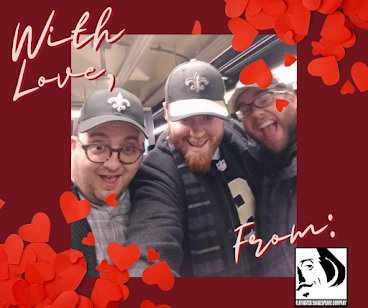NOW HIRING: Operations Manager
FLATWATER SHAKESPEARE COMPANY SEEKS OPERATIONS MANAGER
Position Title: Operations Manager
FLSA Status: Contract, Part-time, exempt
Hours: Vary widely; 30+ hours per week during production times; most weeks 4-8 hours
Reports to: Executive Artistic Director
Salary: $6000/year
Who: Flatwater Shakespeare Company is a 20+ year running professional theater company that typically produces 2-3 shows per year and runs an education program. Visit: https://flatwatershakespearecompany.org
Location: Primarily in Lincoln, NE & surrounding rural communities. Most work can be done remotely, but successful candidates will need to spend time in Lincoln and should be a Nebraska resident.
Expectation of all employees: Each employee shall support the organization’s core mission, vision and values by exhibiting excellence and competence, collaboration, innovation, respect, accountability and ownership. Flatwater Shakespeare values diversity, equity and inclusion in the workplace.
General Summary: The Operations Manager will be responsible for office management, handling the box office, assisting the Executive Artistic Director with financial coordination and coordinating grant writing and reporting activities. Knowledge of non-profit operations is required. Must have excellent financial skills, planning and organizational skills, basic accounting and budgeting understanding.
Essential Job Functions
Accounting:
Assist with the development of the budget
Code all expense and income items based on the budget & grants and email weekly (or as needed) to the accountant
Monitor accurate coding based on grant requirements
Coordinate & track grant calendar and scheduling of proposals and reports
Coordinate the development of proposals and assist in grant writing
Assist with Case Statement activities for corporate requests
Manage all insurance payments and reports.
Check 1099’s from accountant for accuracy
Prepare and submit 990 by due date
Governance:
Attend board meetings, present & coordinate regular reports to the board
Programming:
Coordinate mailings related to productions and fundraising –develop and update physical and e- mailing lists, coordinate printing of postcards, collating and sending materials
Coordinate box office activities – get cash, identify volunteers, set up systems, purchase concessions, manage square
Monitor & ticket sales and attendance
Track donor info
Pick up the mail from the PO box regularly and process it
Make phone calls and handle inquiries
Desired Education and Experience
Associate degree or higher in management or related field
2-3 years of experience with nonprofit organization
Knowledge, Skills and Abilities Preferred
Savvy with technology and a variety of platforms to increase accessibility to virtual programming
Applicant must have their own computer and reliable internet access
Reliable transportation; if the applicant lives outside of Lincoln, they must be willing to travel to Lincoln as needed.
Disclaimer: The statements contained in this job description are intended to describe the general nature and level of work being performed by employees and are not to be construed as an exhaustive list of tasks.
Additional information: Questions may be addressed to Executive Artistic Director Marshall Carby at the email address below. Apply: Please send application materials (CV and cover letter, with three professional references) to Executive Artistic Director Marshall Carby: marshall.flatwatershakespeare@gmail.com







